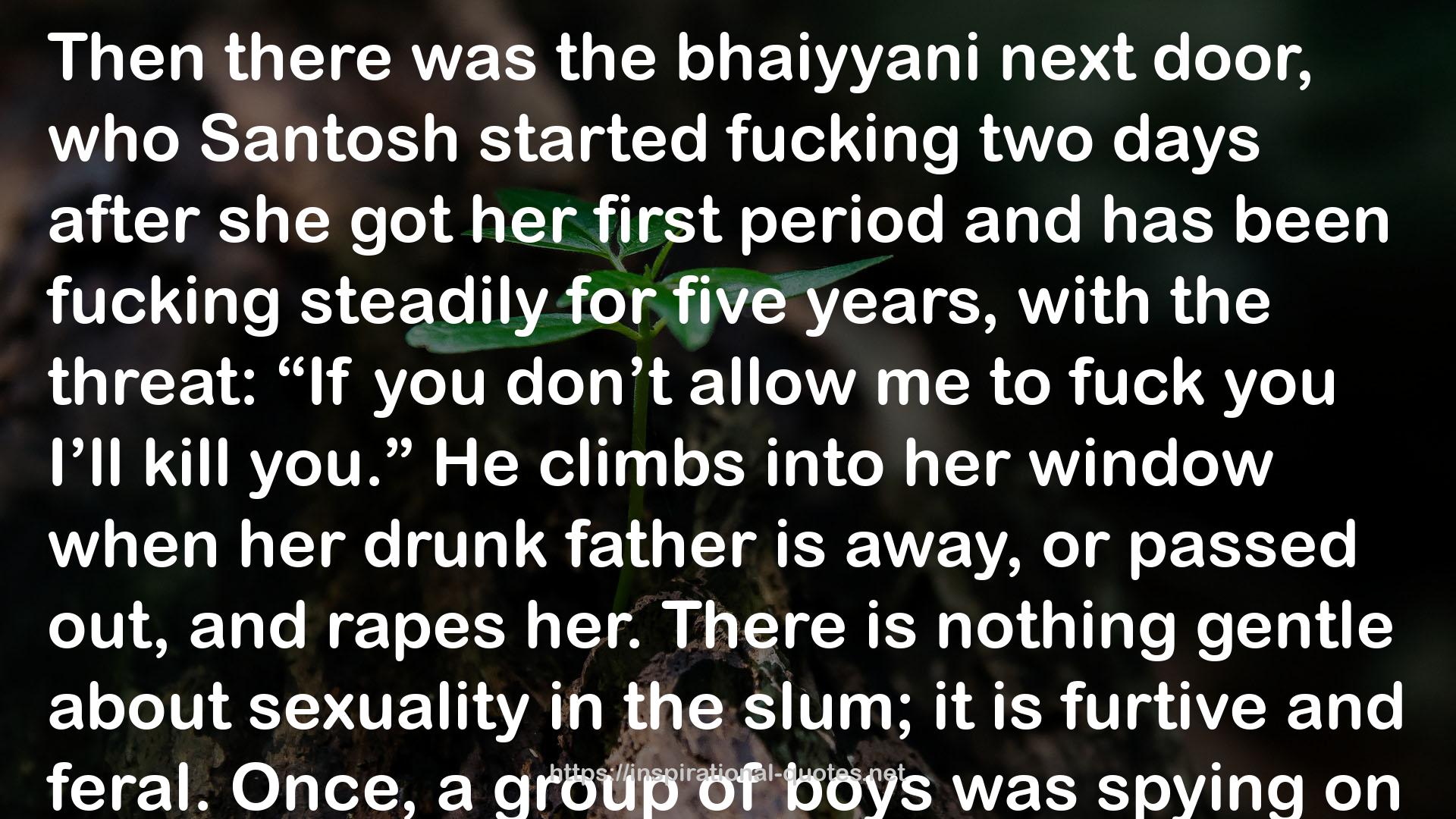" Then there was the bhaiyyani next door, who Santosh started fucking two days after she got her first period and has been fucking steadily for five years, with the threat: “If you don’t allow me to fuck you I’ll kill you.” He climbs into her window when her drunk father is away, or passed out, and rapes her. There is nothing gentle about sexuality in the slum; it is furtive and feral. Once, a group of boys was spying on a couple asleep near the door of their room; the man had a hand on one of his wife’s breasts. Santosh reached in through the opening for the letterbox and started squeezing the wife’s other breast; she slept on, thinking that her husband was squeezing both. When she felt the extra pressure on one, she woke up and screamed but was too afraid to tell her husband what had happened. Much of what a woman in the slum puts up with she endures silently, because, as Sunil points out, “How can she tell the world what has been done to her?” They go after women who are vulnerable: the very young, the children or wives of drunkards, or women not right in the head. When their men discover what’s being done to them, they too most often keep it quiet. Who would want the world to know? What does it say about their manliness, that they were unable to protect their women? I "
― Suketu Mehta , Maximum City: Bombay Lost and Found
